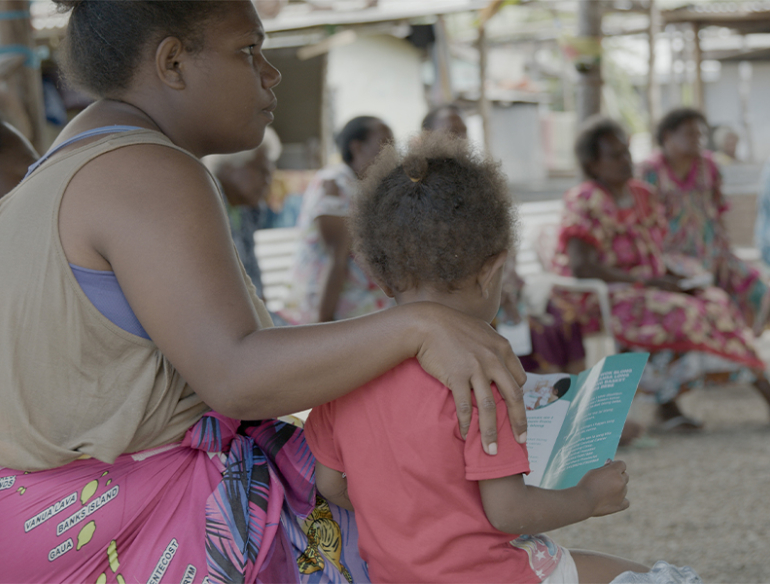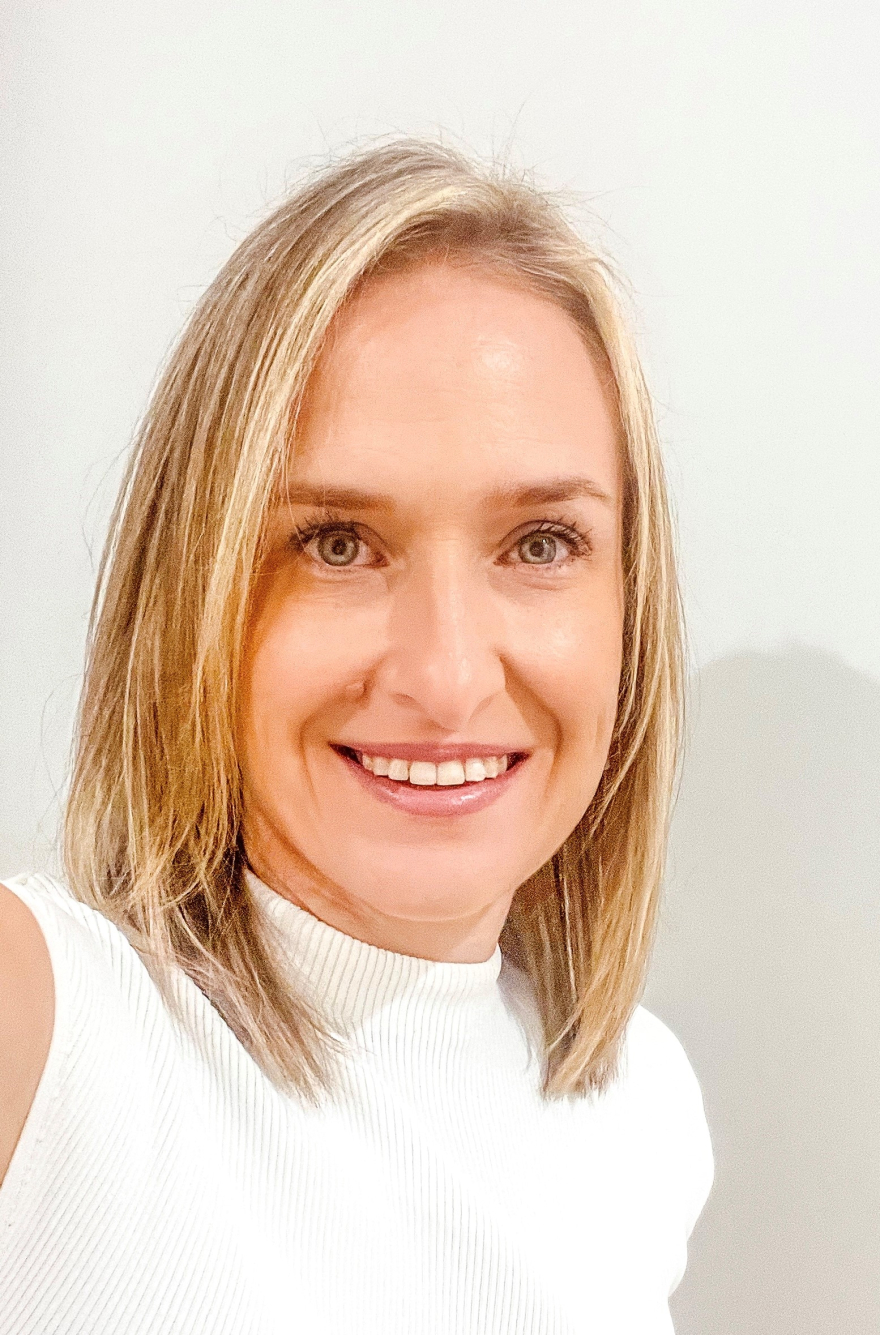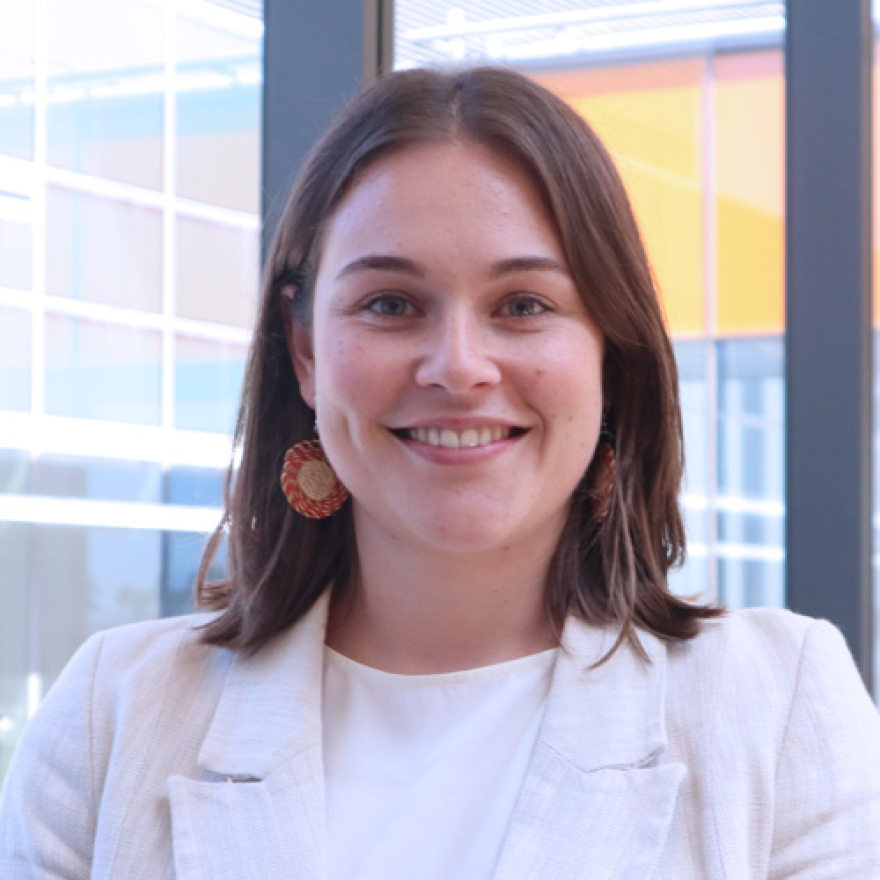Cervical cancer is one of the most preventable and treatable cancers if detected and treated early, yet it continues to be a significant public health problem and cause of premature death among women in the Pacific. It is caused by human papillomavirus (HPV).
According to the World Health Organization (WHO), rates of cervical cancer in Fiji, Solomon Islands, Vanuatu, and other low- and middle-income countries (LMIC) in our region are among the highest in the world. Cervical cancer is the number one cause of cancer related death among women in the Pacific, with mortality rates up to 14 times that of Australia. Almost all cases of cervical cancer are due to HPV infection, a common virus spread through sexual contact. Unfortunately, the majority of women with HPV infection or early cervical disease do not experience symptoms, making screening essential to detect disease early and prevent its progression.
Despite huge efforts over many years, it has not been possible in the majority of countries in our region to establish and sustain population-based cervical screening programs based on cervical cytology or visual inspection methods.
New advances in cervical screening, particularly the development of highly accurate tests for HPV that can be provided at point-of-care on self-collected specimens, and new treatment options that are highly effective and easy-to-use, mean that women can now be offered same-day screening and treatment to prevent cervical cancer in real time, reducing the risk of progressive disease and saving women’s lives.
Working in partnership with in-country leaders, health workers and communities, the Kirby Institute UNSW Sydney, and longstanding Australian and regional partners the University of Sydney, Australian Centre for Prevention of Cervical Cancer (ACPCC), Family Planning Australia, and the Pacific Community (SPC), will support the advancement of cervical cancer elimination across the Pacific thanks to a $25.9 million donation from the Swire Group.
The Advancing Cervical Cancer Elimination in the Pacific program (AdvanCE) will build on and align with existing development partner and philanthropic investments in our region to provide human papillomavirus (HPV) based cervical screening and treatment to 130,000 women in seven countries: Fiji, Kiribati, Republic of Marshall Islands, Samoa, Solomon Islands, Tonga and Vanuatu.
HPV screen-and-treat is a point-of-care screening strategy suitable for delivery in primary health care facilities. HPV testing is carried out on samples collected by women themselves using a low-cost swab. Women who test positive are offered same-day cervical thermal ablation treatment or referred for specialist review if indicated.
The approach can be readily provided by mobile outreach services to reach women in rural and remote areas and has been shown to be highly acceptable to women across a range of cultural settings. It is readily scalable, as only around 15% of women have a positive HPV test result and need to be examined and treated by a trained health-worker.
This initiative builds on more than a decade of collaborative research in Papua New Guinea by the Kirby Institute and the PNG Institute of Medical Research, conducted in close partnership with national and provincial health authorities, academic research institutes, medical societies and expert groups, consumer and patient advocates, and women, their families and communities. This included the very first field trials in the world to demonstrate the clinical effectiveness, safety, acceptability, scalability, and cost-effectiveness of point-of-care HPV self-collection, testing and same-day treatment (HPV ‘screen-and-treat’) for cervical cancer prevention. This innovative strategy is now a key component of the WHO global cervical cancer elimination guidelines, the Eliminating Cervical Cancer in the Western Pacific (ECCWP) program, the Elimination Partnership in the Indo-Pacific for Cervical Cancer (EPICC) program, and is national policy in PNG, Vanuatu, Tuvalu, Nauru, Fiji, and other countries across our region.
AdvanCE will support the introduction and scale-up of HPV screen-and-treat in seven countries, supporting national-level programs in Republic of Marshall Islands, Kiribati, Samoa, Tonga, and Vanuatu; and major sub-national programs in Fiji and Solomon Islands.
Screening and treatment will be offered to all age-eligible women in these settings with an anticipated total of 130,500 women screened over 5 years. We will coordinate with and support national HPV vaccination and cervical cancer treatment programs and enable partner countries to achieve the World Health Organization ‘90/70/90’ coverage targets and to advance on the path to eliminating cervical cancer.
Working in partnership with in-country leaders, health workers and communities, including:
- Fiji Ministry of Health and Medical Services
- Fiji Cancer Society
- Kiribati Ministry of Health and Medical Services
- Republic of Marshall Islands Ministry of Health and Medical Services
- Samoa Ministry of Health
- Solomon Islands Ministry of Health and Medical Services
- Samoa Ministry of Health
- Tonga Ministry of Health
- Vanuatu Ministry of Health
- Vanuatu Family Health Association
In addition to longstanding Australian and regional partners the University of Sydney, Australian Centre for Prevention of Cervical Cancer (ACPCC), Family Planning Australia, and the Pacific Community (SPC).
The Advancing Cervical Cancer Elimination in the Pacific program (AdvanCE) has been established through the support of the Swire Group.



